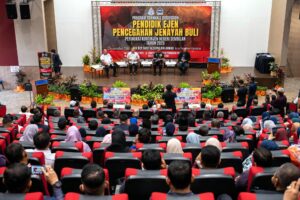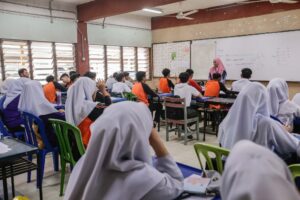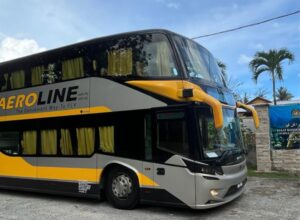PUTRAJAYA, Nov 5 — Deputy Prime Minister Datuk Seri Fadillah Yusof commended the Putrajaya Festival of Ideas (FOI) 2025 as a timely platform to advance education for a resilient and sustainable future, noting that resilience must be built through education that empowers and adapts to change.
He said resilience was not merely about recovery, but the ability to anticipate, adapt and transform in the face of crises, a strength that education helps to cultivate through critical thinking, empathy and innovation.
“Education builds that capacity. It cultivates critical thinkers, empathetic citizens and courageous innovators.
“It is through education that we nurture both intellect and integrity, the twin pillars of enduring strength,” he said in his speech on the second day of the Putrajaya FOI themed “The World Beyond 2030: Towards a Resilient Future through Education” here today.
Fadillah said during times of crisis such as pandemics, conflicts or climate disasters, education had stood as the silent first responder, with teachers as pillars of stability, students as symbols of endurance and institutions as engines of adaptation.
Fadillah said the world is experiencing an era of unprecedented technological transformation driven by artificial intelligence (AI), robotics and quantum innovation, which are redefining economies, reshaping labour and reimagining the very act of learning.
In Malaysia, he said the government is embedding AI literacy and digital fluency across the education system to ensure learners become masters of technology, not servants to it, with a human-centred digital transition guided by ethics, equity and empathy.
At the same time, he noted that Malaysia is reimagining education as a lifelong journey through micro-credentials, digital learning pathways and the Technical and Vocational Education and Training (TVET) Excellence Framework, while also repositioning TVET as a pathway of first choice and a launchpad for innovation and entrepreneurship.
Fadillah also called for a New Global Compact for Education to equip humanity not just to survive the future, but to shape it with wisdom, empathy and courage.
He said the call reflects Malaysia’s belief that education must go beyond knowledge transfer and become a force that strengthens human character and global cooperation.
“Malaysia’s journey in education reform is guided by a simple conviction – nation-building begins with mind-building,” he said, adding that the Malaysia Madani framework serves as the guiding philosophy, harmonising progress with compassion, innovation with inclusion, and modernity with morality.
Fadillah said Malaysia is also positioning higher education as a bridge for peace and cooperation, connecting the Global North and South through partnerships that promote research, student mobility and mutual understanding.
He said to move beyond 2030, nations must shift from aspiration to action, from silos to solidarity, and from access to agency, ensuring that every learner becomes an architect of solutions, not just a recipient of knowledge.
“Education is more than an investment in human capital; it is an investment in human character,” he said, urging governments, institutions and youth to work together in shaping a world where education itself becomes the solution to crises. — Bernama





